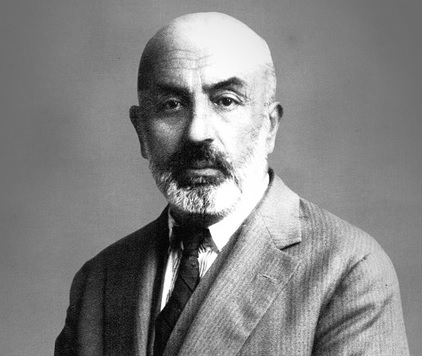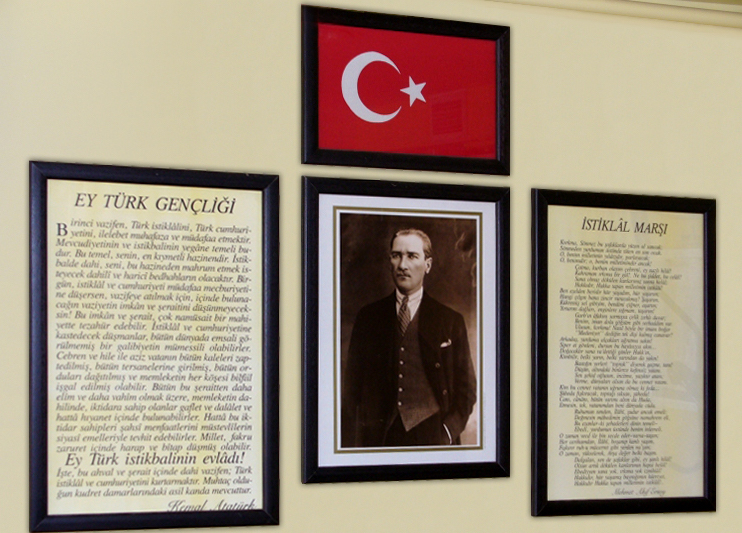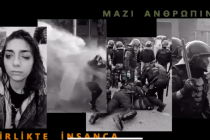The Turkish national anthem celebrates its centenary today, after the İstiklal Marşı – or Independence March – was formally adopted as the country’s song on 12 March 1921.
The words were written by Mehmet Âkif Ersoy, who bequeathed his work free of charge to the Turkish nation, and the music was composed by Osman Zeki Üngör.
İstiklal Marşı was adopted some two-and-a-half years before the Republic of Turkey was declared on 29 October 1923, and served as the Turks’ patriotic anthem during their War of Independence (1919-1922).
It came about through a competition organised by the Turkish National Movement (TNM), an organisation led by Mustafa Kemal Atatürk. The TNM offered a cash prize in 1921 to help find a new anthem, prompting a total of 724 entries.

Ersoy, a famed Turkish poet of Albanian and Uzbek heritage, initially refused to participate because of the cash prize. After being persuaded he could give away the prize if he won, Ersoy agreed to submit a poem, which was recited to the National Assembly by Hamdullah Suphi. It was unanimously adopted by the Turkish representatives, and his prize money given to a society for Turkish war veterans.
Regarded as one of the greatest literary writers of his time, and with an excellent command of the Turkish language, Ersoy crafted the new anthem around affection for the Turkish homeland, symbolised in its flag, soil and the heroic nature of Turks.
In ten short verses Ersoy, threaded in elements of faith, hope and fearlessness, alongside sacrifice in the pursuit of freedom, as a tribute to the soldiers who were laying down their lives for the liberation of Turks during the War of Independence.
Commonly just the first two stanzas of the İstiklal Marşı are used for public events:
Korkma! Sönmez bu şafaklarda yüzen al sancak,
Sönmeden yurdumun üstünde tüten en son ocak.
O benim milletimin yıldızıdır, parlayacak;
O benimdir, o benim milletimindir ancak.
Çatma, kurban olayım, çehreni ey nazlı hilal!
Kahraman ırkıma bir gül; ne bu şiddet, bu celal?
Sana olmaz dökülen kanlarımız sonra helal…
Hakkıdır, Hakk’a tapan milletimin istiklal.
The English translation of the İstiklal Marşı’s first two verses are:
Fear not! The red banner that ripples in this dawn shall not fade,
Before the last hearth that is ablaze within my homeland is extinguished.
It is the star of my people, which shall shine;
It is mine; it only belongs to my people.
Frown not, I beseech thou, oh thou coy crescent!
Smile upon my heroic nation once! What is this violence, what is this rage for?
Our blood which we shed for you shall not be worthy afterwards…
Freedom is the right of my God-worshipping people.
Originally, Ali Rıfat Çağatay set Ersoy’s words to music. However, in 1930 a new musical composition by Osman Zeki Üngör, a virtuoso composer and the first conductor of the Presidential Symphony Orchestra of the Republic of Turkey, became adopted instead.
Two years later Edgar Manas, a Turkish composer and conductor of Armenian descent, was commissioned by the Turkish government to create an orchestral rendition of Üngör’s melody. His work led to the final version of Turkey’s national anthem.
The Turkish Republic of North Cyprus adopted the same national anthem when it was declared on 15 November 1983.
Main image, top, from 2007, uploaded to English Wikipedia by Zscout370 from Flickr. Photograph © QuartierLatin1968, here shown slightly cropped, CC BY-SA 2.0





